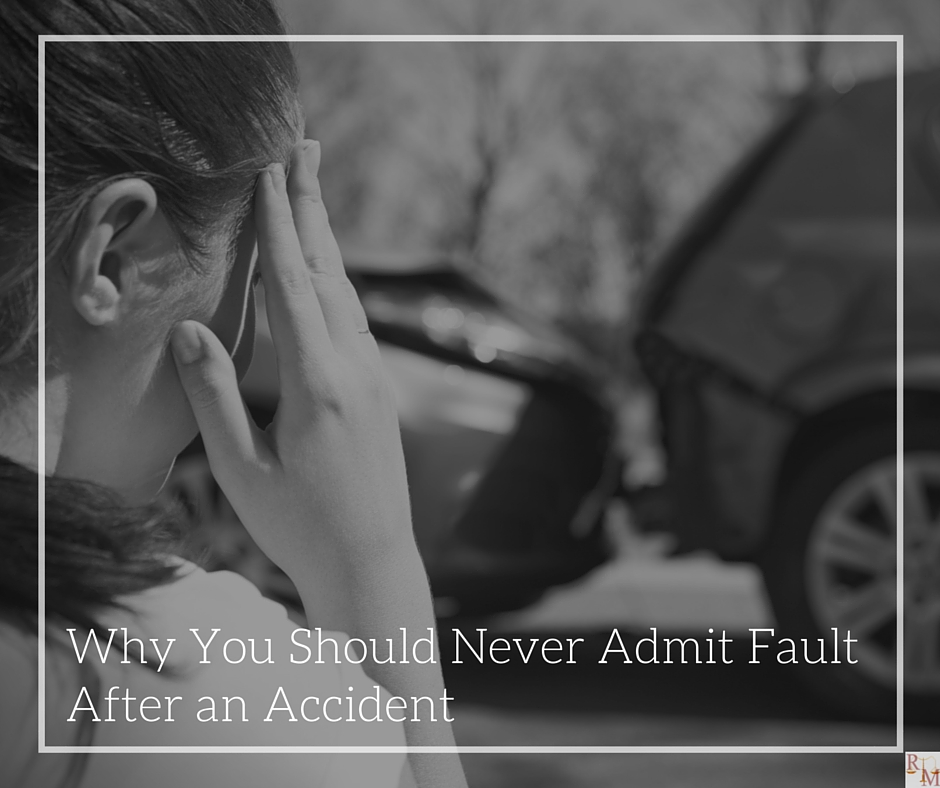Why You Should Never Admit Fault After an Accident

Moments after an auto accident, you begin to notice injuries to passengers and damage to your vehicle. After checking to see if everyone is alright, the next big question often asked after a car crash is, “whose fault was the accident?” Some drivers involved in auto accidents are eager to assign fault and will blame the other motorist, while others might apologize for their actions. Regardless of who was at fault, this question can significantly impact the outcome of a personal injury case. While assigning fault outside an official police or witness report seems natural after the trauma of an auto accident, it can come back to haunt you in personal injury cases.
The dangers of admitting fault
Prior to admitting fault in an automobile accident, there are a number of important factors to consider. Admitting fault can result in you paying more money if you are the defendant or receiving less compensation if you are the plaintiff. In many states, personal injury lawsuits can seek compensation based on a percentage of fault. For example, one driver can be found 10 percent responsible while the other motorist can be found 90 percent responsible for the accident. This percentage can be distorted if you admit fault at the scene of an auto accident or in conversation with the other driver.
Since auto accidents can be extremely stressful and emotional situations, you might admit fault without even knowing it. After cleaning up the scene and going home, you might want to talk about an accident with trusted friends and loved ones. However, it is important to watch what you say on social media, as posts such as status updates and photos can be used in court as evidence of fault. For more tips on using social media before or during a personal injury lawsuit, check out this blog.
Speak very carefully
Following a personal injury accident, it is vital that you make an effort to not say anything that can be viewed as incriminating evidence. Anything along the lines of, “I’m sorry,” or “I didn’t see you,” can be used as evidence of fault in court. While it is common decency to acknowledge regret or disapproval for an auto accident, remember that you do not have to determine whose fault it was. Let police and witness reports, photographs and other official evidence determine fault, rather than a knee-jerk reaction after an accident.
Bottom line, never admit fault when you are involved in an auto accident. Let the police and your attorney take care of the details to avoid landing yourself in hot water. If you or someone you know has been involved in an accident, it is important to speak with a qualified Sacramento personal injury attorney. For more information or to set up a consultation, call Robert L. Meissner today at (916) 473-1537.
